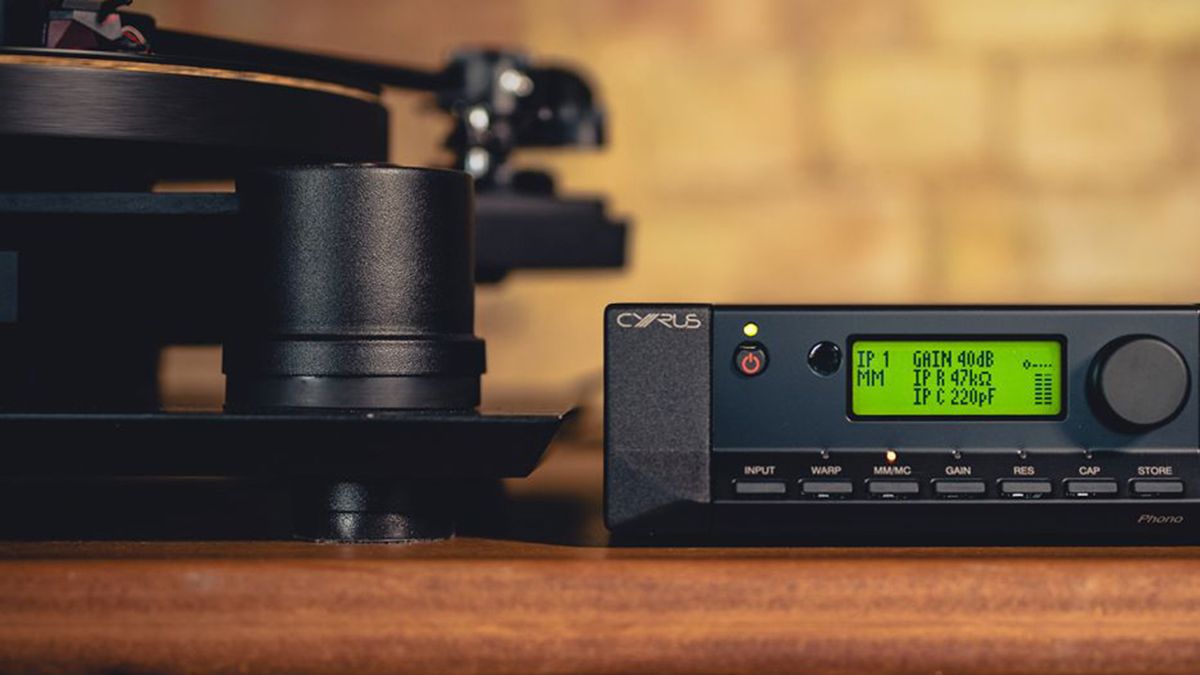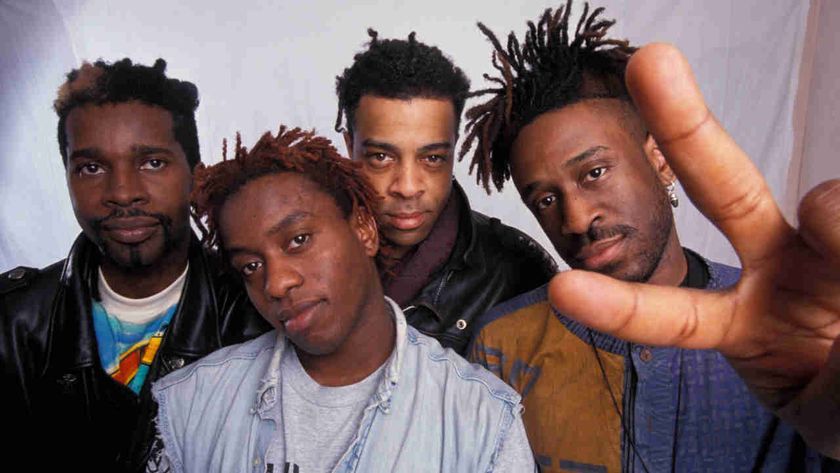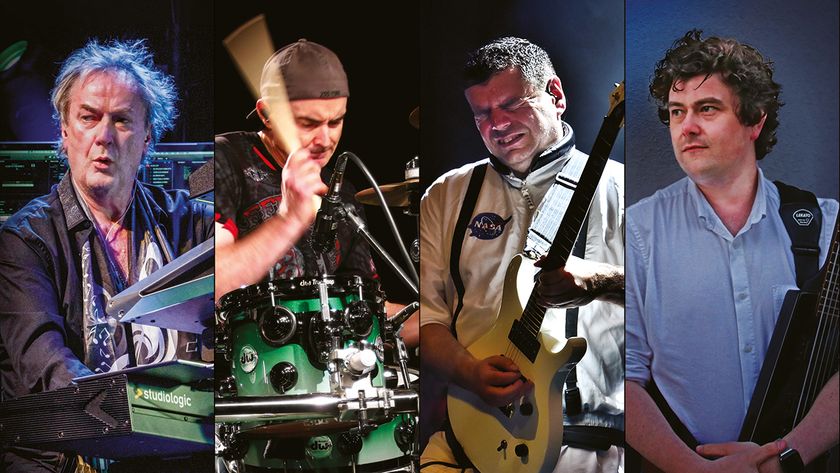Whether you’re a new convert to vinyl, kickstarting your collection with a range of contemporary albums, or an old hand who now has a sizeable collection of albums at your fingertips, adding one of the best phono preamps to your Hi-Fi system can bring an immediate improvement in sound quality.
But just how do phono preamps work and what one is right for your system? In this Louder guide, we’ll explain the basics and steer you towards some of the best phono preamps for your budget.

Paul has spent the past eight years testing and writing about gadgets and technology for the likes of Louder, T3 and TechRadar. He might not have the wealth or the looks of Tony Stark, but when it comes to knowing about the latest cool kit, Paul would surely give Iron-Man a run for his money. As for his musical leanings, Paul likes everything from Weyes Blood to Nirvana. If it's got a good melody, he's on board with it.
The quick list
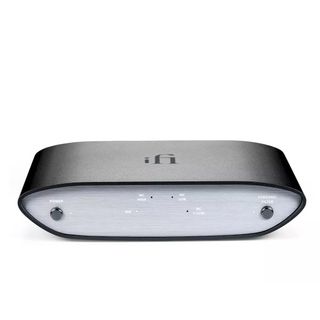
If you're just getting off the ground when it comes to phono preamps, then I highly recommend the iFi Audio Zen. Not only is it well-priced, but you'll also get great performance for the money with low distortion, dual-mono circuit designed phono preamp.
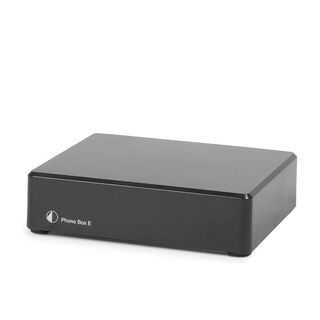
Pro-Ject has become a name you can trust when it comes to their audio hardware, and their Phono Box E is no exception. Available in either black or white, it'll sit nicely beside your turntable and give you excellent performance - especially paired with a Pro-Ject record player.
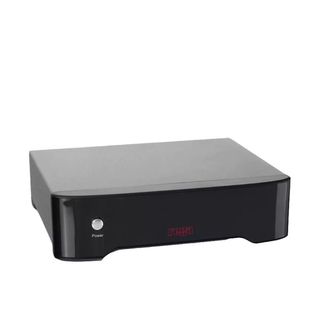
Another option from an ultra-reliable brand is the Rega Fono MM MK3 - another top performer, albeit at a significantly higher price. It's very easy to set up and use and you'll be well rewarded with its balanced performance. For beginners, I suggest either the Pro-Ject or iFi products above though.
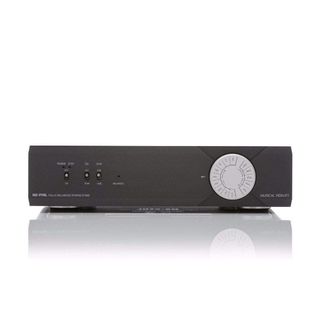
The Musical Fidelity MX-VYNL is a top option if you've previously dipped your toe into the world of phono pre-amps but are looking for an upgrade. It delivers detail-orientated sound and will make your classic rock albums shine. It also supports Moving Magnet and Moving Coil cartridges to round things off.
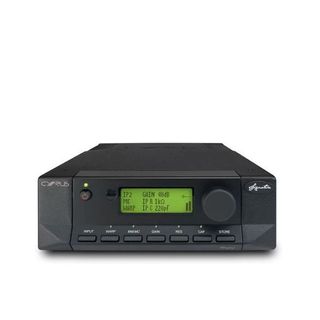
Considering the price of the Cyrus Phono Signature, you'd expect it to be incredible... and it is. This is an exceptional phono preamp that sounds amazing and also supports up to four turntables. The price will put many off, but if you're after something truly special, it doesn't get much better.
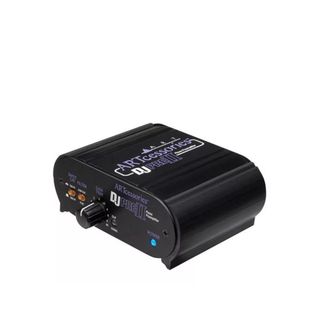
While the ART Pro DJPRE II is a robust phono preamp that will give your audio lovely warmth and clarity, it's getting a little harder to find these days - hence its position in our list of the best phono pre-amps. That said, if you do find it, it's definitely worth a closer look thanks to its performance, neat design and affordable price.
Best entry level
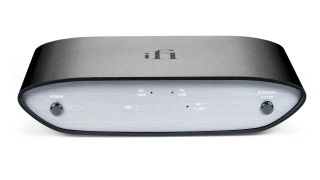
Part of iFi Audio’s compact Zen range, this phono preamp offers plenty of sonic niceties for the price, including adjustable gain and a subsonic filter.
To deliver a premium performance from such an affordable box, iFi’s audio boffins have executed a balanced, symmetrical dual-mono circuit design, aping what’s normally found on higher-end kit. It also uses some fancy componentry for highly accurate RIAA equalisation. The result is an ultra-low-noise, low distortion performer.
Connections include the usual stereo RCA inputs and outputs, and more unusually at this price, a 4.4mm Pentaconn balanced output which can be used to connect to an amp or active speakers equipped with a balanced input, either a Pentaconn or XLR via an adapter.
The Zen Phono is also one of the few sub-£200 phono stages able to handle both moving coil and moving magnet (MM) cartridges. Gain adjustments are available to make the most of whichever MC cartridge takes your fancy.
Best bargain
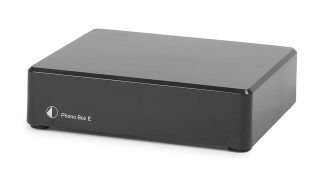
Pro-Ject doesn’t just make best-selling, award-winning turntables, it also offers an exhaustive range of phono preamps. If you own the former, it makes perfect sense to add the latter.
This Phono Box E won’t set you back much either. Available in either black or white finishes, it’s a tidy unit with standard RCA ins and outs, designed to sit alongside your record deck or amplifier.
Moving Magnet cartridge compatible, it uses low-noise components and the power supply is separate. If you’re tempted to experiment with a dedicated phono stage, but don’t want to splash too much cash, it’s a perfect phono stage taster.
Best out the box
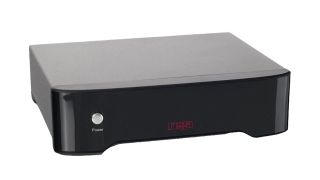
This is the third edition of a critical darling, and a worthy upgrade. Rega is an ultra reliable brand and the Fono MM MK3 is a sterling performer in its class, offering subtle, uncomplicated revisions on its blockbuster predecessors.
Boasting a simple user-friendly interface and sound that emphasises clarity and breadth, it’s a great all-rounder. For those with slightly deeper pockets – around £800 – the is another excellent preamp for those in search of an upgrade.
Best high-end
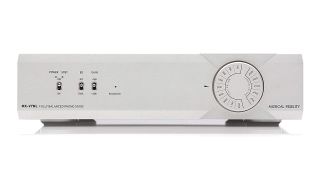
The Musical Fidelity MX-VYNL prizes build quality and user-friendliness, with a side order of flexibility thanks to its ability to navigate both moving coil and moving magnet inputs with minimal fuss and a good deal of user control.
This is the sort of preamp that, when matched with the right turntable, brings out the depth and complexity of prog, the visceral power of metal and the pure joy of pop punk. In short, it’ll finding a glow among the nuts and bolts of any song.
It’s also versatile, supporting both Moving Magnet and Moving Coil cartridges; with five different capacitance settings for MM and nine impedance values for MC. Rear connectivity includes both stereo RCA and XLR outputs.
Best audiophile pick
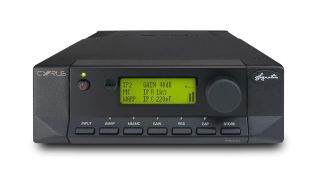
Now we’re starting to swim with audiophiles: the Cyrus Phono Signature is a phono preamp designed for the highest Hi-Fi turntables, four in fact. A quartet of decks can actually be attached and optimised with this single unit, each input matched to the specifications of a designated cartridge. If you can take full advantage of this, consider yourself a bona fide audiophile.
Outputs include a pair of XLRs, in addition to standard RCAs. Sound-wise, it’s sharp but fully rounded and doesn’t skimp on the low end in search of overall clarity.
Best compact design
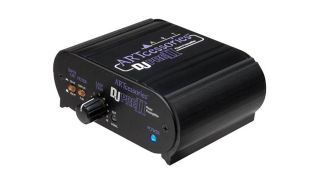
It’s not exactly pretty, but the good folks at ART (Applied Research and Technology) know how to serve up a bargain. The DJPRE II makes up for any cosmetic misgivings with a high standard of performance.
Boasting clarity and warmth, this preamp is worth its place alongside more expensive units and is encased in a durable, well-made housing. It’s not going to die on you, or snap in two, without a fight.
Buying advice
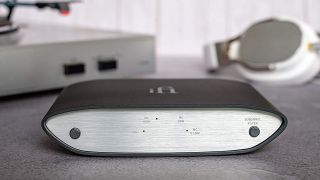
A phono preamp (Hi-Fi dudes often like to call them a Phono Stage, probably because it sounds more musical) is an integral part of any record system. For the most part, you’ll not even be aware it’s there because it's built-in, hidden under the hood, either in the record deck itself or your integrated stereo amplifier.
This may well prompt you to ask: if it’s already built-in, why do I need to buy another one? In truth, you don’t. Yes, this is a buyer’s guide for something you don’t need to buy. But that doesn’t mean you won’t want to buy one. Here’s why…
The job of a phono preamp is to amplify the tiny signal generated by the record deck’s phono cartridge as it tracks a disc, to line level. The signal created by a cartridge is only around five or six millivolts (think Little Mix), but your amplifier needs something 300 times louder (think Metallica). A phono preamp also performs something magical called RIAA Equalisation, which compensates for the treble hike and bass cut that takes place during the disc mastering process.
If your turntable doesn’t have a built-in phono stage, you’ll need to connect it to a dedicated phono input input on your amp. If you were to plug your turntable directly into the same place, skipping the phono stage, any sound produced would be very reedy, very thin and stupidly quiet.
A growing number of turntables, including many of the best budget turntables like the versatile Sony PS-HX500, come with built-in phono stages but others, like the similarly excellent Rega Planar 1, do not.
If your deck does have a phono stage, it’ll output your rock‘n’roll at line level, so you’ll be able to connect it to whatever RCA input you want on your amplifier. Thing is, this phono preamp – be it in the deck or the amp – has a disproportionate influence on the sound of your turntable. More often than not, it’ll be built to a price, probably just a few bucks in terms of manufacturing cost. They’re rarely if ever as accomplished as a purpose built off board phono stage. Which is why you should invest in a standalone phono preamp.
When you cut the built-in phono stage out of the loop, and replace it with something better, your vinyl will begin to reveal its true potential. A dedicated phono stage is easy to install: it sits in the signal chain between the turntable and any line-level input on your amp. A word of caution: Don’t take the output from your phono preamp and connect it to the phono stage on an amplifier, as that will double amplify the signal, resulting in catastrophic distortion (which isn’t as good as it sounds).
A great preamp paired with a cracking turntable is the holy grail of vinyl performance, and a top notch preamp is also capable of lifting the performance of more workmanlike machines.
There are a few considerations to be made when investing in a preamp with regards setup and space. Phono stages range from very compact – a small box that can easily be tucked away in the background with a few wires and possibly a power adapter – to full-size components designed to sit proudly amid alongside serious amplification.
Also, be aware that preamps are designed to work with two different cartridge types: moving magnetic (aka MM), the most common option, and moving coil (MC), rather more esoteric. Some cover both, but make sure you’re aware of the difference and matching the correct preamp to your turntable.
Related guides
You can trust Louder Our experienced team has worked for some of the biggest brands in music. From testing headphones to reviewing albums, our experts aim to create reviews you can trust. Find out more about how we review.
The best budget turntables: Spin your sounds for less
How to properly set up a record player: Get the most from your system
Direct-drive vs belt-drive turntables: What's the difference?
Best vinyl record cleaners: Keep your vinyl collection in prime condition
7 ways to make your vinyl sound better: Get the perfect set-up
